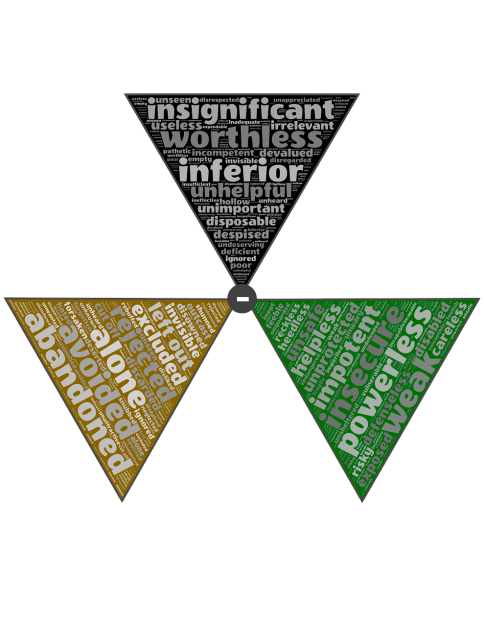In essence, Mindfulness is a state of awareness that focuses on the moment you are in, being aware of only the self within that moment. Mindfulness is primarily about being aware of your thoughts and accepting those thoughts for what they are, just thoughts. It is mostly about trying to empty one’s head of thoughts when it feels too full and reinstating a sense of calmness and control over one’s self when feeling overwhelmed. That is the beauty of Mindfulness, it is not an action necessarily, and it is not something that is flamboyant or particularly exciting. In fact, I would say it is designed by its very purpose and definition to be the opposite of that. It is merely being the moment, existing, peacefully and in a way that makes you aware of your own existence and your own being.
Is It Legit?

For those of you who may be worried that I am trying to rope them into some kind of obscure cult I can assure you I am not (I understand your skepticism as alternative healing methods, meditative and spiritual techniques are often treated with scorn and derision due to the fact that THERE ARE SO MANY OUT THERE THAT ARE COMPLETE RUBBISH in the MBS – Mind, Body & Soul – movement. I assure you this is not one of those fly by night disciplines designed to take advantage of people looking for help). If you need proof of legitimacy, MBSR (Mindfulness Based Stress Reduction) and MBCT (Mindfulness Based Cognitive Therapy) have both been recognized as a legitimate way of managing stress and depression and programs are even being prescribed by medical professionals; these programs mostly include meditation, gentle yoga and breathing techniques. Learning the discipline of emptying ones mind allows us to free ourselves from the constraints of the ever-increasing stresses of everyday life, the choices we have to make and the general unpredictable nature of life. Emptying ourselves of thought and emotional attachment frees up room to see things from different perspectives and solve more of our problems. In my opinion, it is this reason that Mindfulness disciplines can be so revelatory for people; by emptying ourselves of thought we can seemingly find space to look at things and solve problems and come back to ourselves with ideas that have seemingly come from nowhere. For more information on Mindfulness and MBSR or MBCT, follow the link: http://bemindful.co.uk.
Thought Awareness

A key part of mindfulness is being aware of your thoughts, what they do to you and the effect they have on your thinking and your state of mind. This is what I will be focusing on primarily in this post, as it has been so beneficial to me. The reason I say this is due to the fact that we cannot always be in a state of meditation all the time. The majority of us in everyday life may be able to find an hour or so each day to spend time meditating, so I thought I would inform you on the discipline I use every day to help me get through and live life as a person with a disability to my full potential and in the best state of mind that I can. Thought Awareness has been a key factor for me in being able to manage my unpredictable state of mind since I suffered my ABI. Thought Awareness is a technique that when used in the right way can be extremely useful in gaining a sense of piece and control and eases the feeling of unpredictability that goes on in the mind of an ABI patient.
If you’re an ABI patient you’ll know, issues regarding mood levels, state of mind, and positive vs. negative outlook are difficult to manage. Trying to find that sense of contentedness and stability in your mind and thought processes can seem like a never-ending struggle. Mastering certain aspects of thought awareness can help you manage these issues. I will not lie to you; it is not an easy thing to master, the particular aspect that I am talking about especially. I would also add that you DEFINITELY CANNOT master it overnight. It can be a period of weeks and even months but please, don’t let that deter you because it has done wonders for me. It is a case of disciplining yourself, not allowing your brain to think the thoughts that lead down a road to depression, anger, and anxiety etc. all of the things that we struggle with as ABI patients, heading them off before they gain momentum.
Negative Thoughts – Where Do They Begin?
The first step of that is learning the thought patterns of your brain. Think of your thoughts almost as a road map, you have to learn that road map inside out.

For example, say you have one of those moments where you suddenly realise that you feel down and depressed, in Thought Awareness it is a case of analyzing the thoughts you were having previously: what was I thinking about? Was it a memory? Was it a hypothetical scenario? Was it an imagined situation? Was it an encounter with a particular person? Ask yourself the question “how did I get here?”
Detective Work

For thoughts to get to a certain place there is a trail, a road to that negative destination. There is almost an element of detective work about the process: looking back through the thoughts you had previously that led you to the place you are now. Analyze those thoughts and see whether they cause a negative, positive or passive response. This can be difficult to do and requires a lot of hard work, discipline and practice. I realise that memory is a problem for people like us with an ABI so when trying to recall your thoughts and analyze them, maybe try jotting them down the subjects and responses in a notebook (this will also come in handy later on).
As time goes on and your unpredictable moods continue (unfortunately having to live with them is all part of the mastering the discipline) and you continue the analytical approach of examining your thoughts and how you respond and writing them down, you will gradually start to build up a list of subjects that you do not react well to when you think about them (and perhaps another which is made up of things which have a positive effect). So you have the beginning of the trail that leads to the negative places we so desperately try to avoid.
The final part of this process is the most important one and probably the hardest. Once you are aware of your thoughts, where they lead and the emotional responses they cause, it becomes a case of training your mind to block off and banish the negative thoughts if they occur in your mind, Actively say to yourself “No, I’m going to think about something else.” Another option is to find a distraction, for example try learning a (positive) poem or the lyrics to a (positive) song that you like and repeating them to yourself or turn to one of the thoughts you noted that had a positive effect, a comedian you like, whatever works for you. You will notice that these positive thought process can gain momentum as well.
How Does It Help?

The most important thing is that by learning where your thoughts lead and being aware of the effect your own mind can have on you can solve a lot of the problems you suffer from. When we find what the triggers for negative thought processes are we can clear our mind of said negativity. Learning this technique, having a more positive outlook and control over your thoughts and where they lead can help you to use your mind to be positive, be happy, solve problems and build confidence. Most importantly it can help us get through days where it seems like everything is lost and the world is against us; days that come far to frequently when recovering from an ABI.